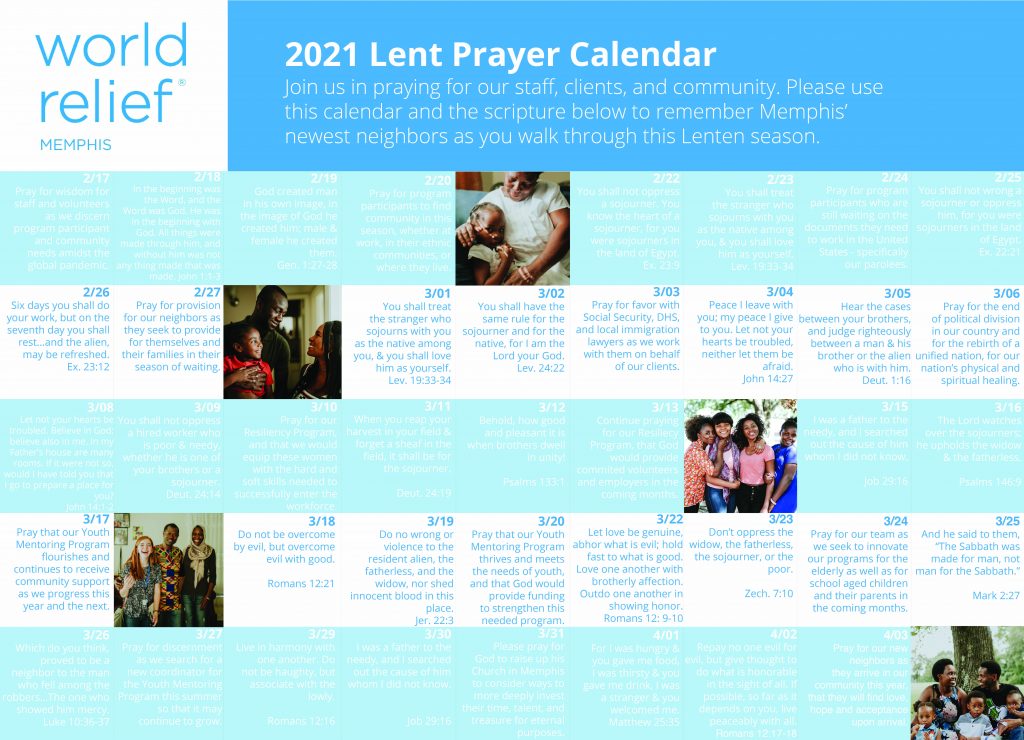Posts Tagged ‘Memphis’
Q&A with local artist with Whitney Winkler
The Lord has continued to bless us this year, and we are so excited to announce that one way in which He has done so is through a donation from local artist, Whitney Winkler! We sat down with her to talk about what the process was like as she made the piece, what inspired it and how art has an impact in her daily life.
This interview has been edited for clarity.
So Whitney, how did you get into painting in the first place?
I have three kids, and they’re a big reason that I’m a painter. They are 10, 7, and 5, and at one point they were 5, 2, and 0, and it was crazy town. I started painting when my second born was an infant.
I’ve always been a creative outlet person. Before kids, that actually looked like songwriting for me. I come from a pretty musical, bluegrass family from the Midwest. My mom writes folk songs, my Dad plays the banjo, and my brother plays the guitar. I knew that I am most alive when I am processing my world, emotions, and thoughts through creativity.
When you’re that sleep deprived, writing a song just seems crushing so there wasn’t that outlet anymore. I started painting at like 11 o’clock at night. I’d use watercolor, just like a mindless medium, and I’d paint while we watched shows to wind down before the baby would wake up again.
I started to sell my work, and selling it to my friends. When my youngest was 1, that’s when I decided “I’m going to give this a go,” and I worked from home.
It just grew and grew. Now I’m a full-time working artist, and I’m opening a new store on Broad and Hollywood. It’s a studio/store combo. It’s just wild.
What generally inspires your work?
I’m really inspired by new life, hope. I’m working on botanical bouquets series right now, and most of my work is pretty bright and hopeful and in general, that’s just who I am. Not in the sense that I don’t understand or feel sorrow, I feel like I’m always drawn to see the glass full, and sometimes to a fault.
I’m just really inspired by pushing back darkness through my art and finding ways that art can be exponential. It doesn’t just have to be something beautiful on a wall. It can continue to impact a community and be something to find joy in on a mundane day.
I’m fascinated by how art brings people together, and what I really want to do in my new store is to host workshops and elevate other people’s voices. I think art has a lot of lanes that are just so helpful.
When our mobilization director, Catherine, came to you about this piece, had you heard of World Relief before?
Yes. I had supported in the past financially and gone to some of your events, so I just knew that when Catherine approached me I would have to be a part of it. Art is the way that I know I can serve the community, just like anyone else with their skills. I just feel like that’s a way to give. And sometimes for me that looks like giving a percentage back, sometimes it looks like getting the artwork and letting you have free reign.
So then, what inspired this piece, and tell us a little bit about how you arrived at the hands cupping water.
Catherine gave me a little bit of direction about what you guys would like to use, such as the hands for the logo. So with that and the colors, I had a good direction to go off of and not to stray too far from the brand that it already has. I like the challenge of fitting something into a brand.
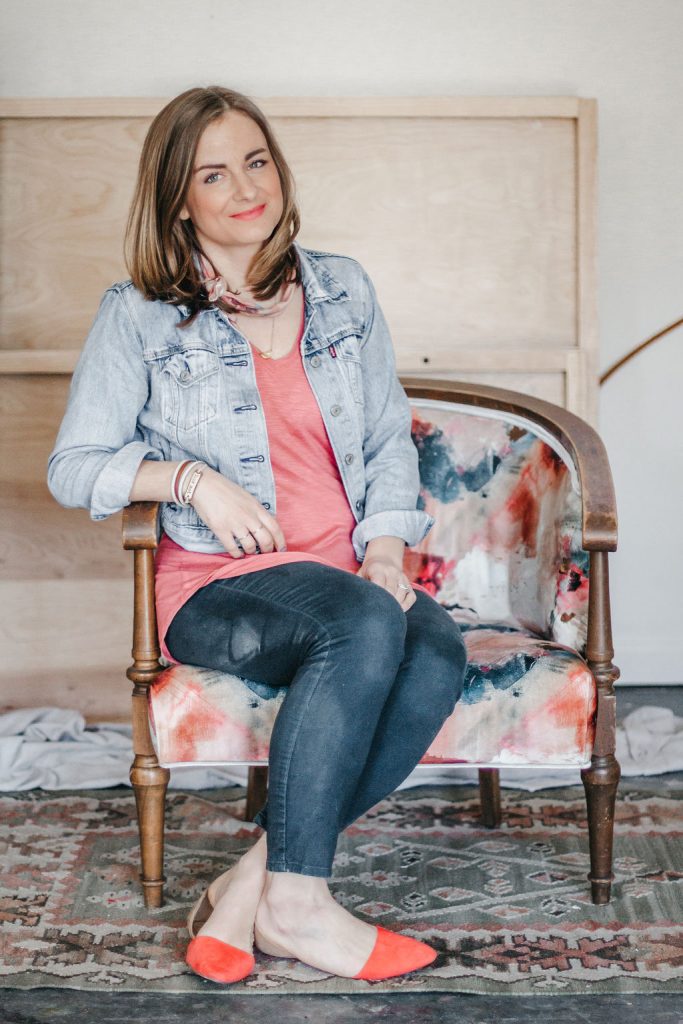
She initially approached me because I do hand gesture art already, and then we talked about kind of a “go team” type gesture with hands, and then we talked about the cupping the hands. Both of them you could make correlate, but I just felt like that kind of embodied what you guys do.
When I had the blue to work with, I could see water, and that’s the most basic human element of life. I know [World Relief Memphis] advocates for way more than just basic needs, but that’s a start. I liked the concept of water, advocacy, and relief. I just wanted it to feel refreshing like a sigh of relief, so that’s kind of why I did the drips of water coming down. It captures all of those words, but also the element of stepping in on behalf of someone and helping them.
What was the process like for you when you started making the print?
I sketched out the hands, and they ended up looking strong. Sometimes I like to paint hands looking more delicate, but I was debating whether I wanted the hands to look that masculine. But as I read over the [World Relief] website and the vision, that core faith, absolutely got all of us: weakness, strength, but I think ultimately the overarching foundation of your mission is that we’re walking in this calling because of God’s calling to our lives to lay down our lives.
I like the symbol of the hands being strong and safe, but also it doesn’t have to be God’s hands. It could be a representation of them, His safety, but I went with the strong hand.
As far as the drips go, I painted watercolor, and the drips, I wouldn’t say that they were a mistake, but I didn’t plan for it to be dripping. So, I think a lot of the process took me by surprise. Just the way the hands came out and the way the water was dripping through. Both of those were not things that I set out to do. It just made sense.
Did you ever think you would have to start over then?
No, that’s how I work all the time actually. I’m a very loose painter, and I don’t paint delicately or intricately, so, I’m pretty used to my medium leading me, rather than the other way around. With the blue I was like “Yeah, this is it.” I imagined someone cupping water, so thirsty, and it just felt really real to have the water come through your hands.
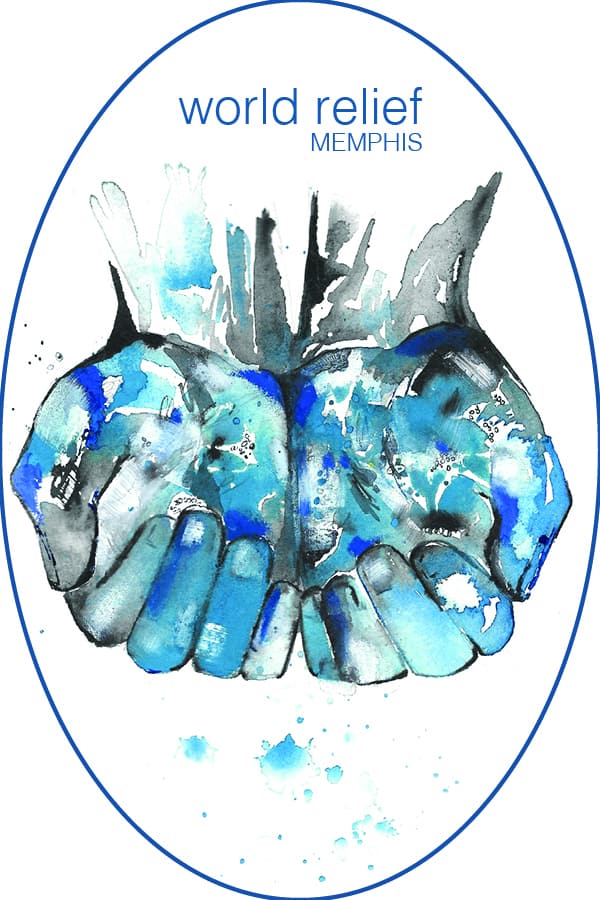
How long did the whole process take you?
I don’t start a painting until I feel like I have an understanding. So, I was on the phone back and forth with Catherine, making sure I had the concept for about a week, and I did the painting in a day. I think I did have a few versions of hands before I landed on the one.
Did you have an idea of how you wanted the print to be used?
Stickers was the initial concept, but I think once you have that art you can really run with it and hopefully raise a lot of money with one piece of art. I feel like things that are beautiful speak to our generation, things that are crafted and carefully done speak to our generation. So, I feel like that is needed in the non-profit world.
Did your faith impact this project at all?
Absolutely! Ever since art has become a career for me, I had always wanted that to be a part of it. Like I said earlier—I think if Christians can serve in the lane that they’re already in it could do so much.
I’ve grown confident to be a Christian in every vocation, and I just try to paint from a place of redemption and hope.
Last year, I was able to give to 5 or 6 organizations, and, if I have control over my business, I want it to be a large percentage of giving, as much as I can. This to me was a no-brainer because it just keeps on giving to an organization I care about. It really can be the same as writing a check in some ways, so, it’s an outflow of something I believe in, and I feel like I’m always looking for those opportunities in our city.
I would encourage believers to serve organizations like World Relief in whatever gifting or day job they have that gives them (World Relief) a different skillset than they have. A graphic designer could donate time, for example, and then organizations like World Relief could invest in other areas.
Out of all of this, then, what would you have to say others who are just hearing about refugees and immigrants or are hesitant to get involved?
Start somewhere. Like I said before, start in an area that feels already in line with your gifting and your time. I think a lot of time people can get paralyzed by that I-don’t-have-every-Tuesday-and-Thursday or whatever it is. That fear holds you back from doing anything, and I relate with it.
I feel like even just talking about it to your own communities, maybe over dinner. Personally, I can live my whole life in Memphis without ever encountering an immigrant, so I feel like we have to talk about it because they really are in the shadows.
We are so thankful for Whitney and the beautiful piece she donated to us, and we cannot wait to share it with you all! If you want to learn more about her work, head to her website or follow her on Instagram @whitneywinkler_art.
If you want to donate a portion of your time like she suggested, fill out a volunteer application today, and we’ll see how we can get you connected to the community. Together, we’ll welcome our newest neighbors to Memphis.
How one volunteer goes above and beyond for his fellow immigrants
In 2009, Arrey Kelvin Bissong made the long journey from Cameroon to Atlanta, alone. He left behind his mother and father, his five siblings and his high school sweetheart in order to be able to provide a better life for his family.
The journey to immigrate to the U.S. was a long one, fraught with challenges, and, once here, those challenges didn’t stop. From going to the post office to going to the grocery store, even mundane tasks became new and different.
When he got home at night, he was alone with no family to talk to, no friends to console him. Today, his high school sweetheart, now his wife, has joined him in the U.S., and they have been blessed with two children. This past year, Arrey’s mother joined them as well, but his early days in America have had a profound impact on his life and that of others.
“It’s not easy to be lonely. You come home from work and there’s nobody to talk to, it’s painful,” Arrey said. “Some days I would cry to God ‘Why? Why can’t you bring my wife here?’ You see people in the church, but it’s not the same.”
His first-hand experience with the loneliness and isolation that accompany an immigrant’s arrival in the U.S. are what drew him to give back to others in situations like his, and, when he heard about World Relief Memphis during a church sermon one day, he felt God’s call to get involved.
“While I was in church, I found out that World Relief helps refugees come to America, and I said ‘Wow, this is me,’” he explained. “I’m not a refugee, but it’s almost my story, so if I’m able to help other Africans who may not know how to speak English like myself, who may not have any background, any education—why not?”
Yet it wasn’t at this moment that Arrey became involved with World Relief, for God had a different plan for him. Rather, it was a few years later when he was going door to door in hope of sharing the Gospel with others that he met Ruth, a Congolese woman pregnant with twins who had been separated from her husband during the immigration process.
Ruth had arrived in Memphis in 2016 with her mother, sister and brother. Since she had filed her paperwork before her marriage, however, she was separated from her husband when it came time to leave the refugee camp. During the medical examinations that are conducted before immigration, she found out that she was pregnant with twins.
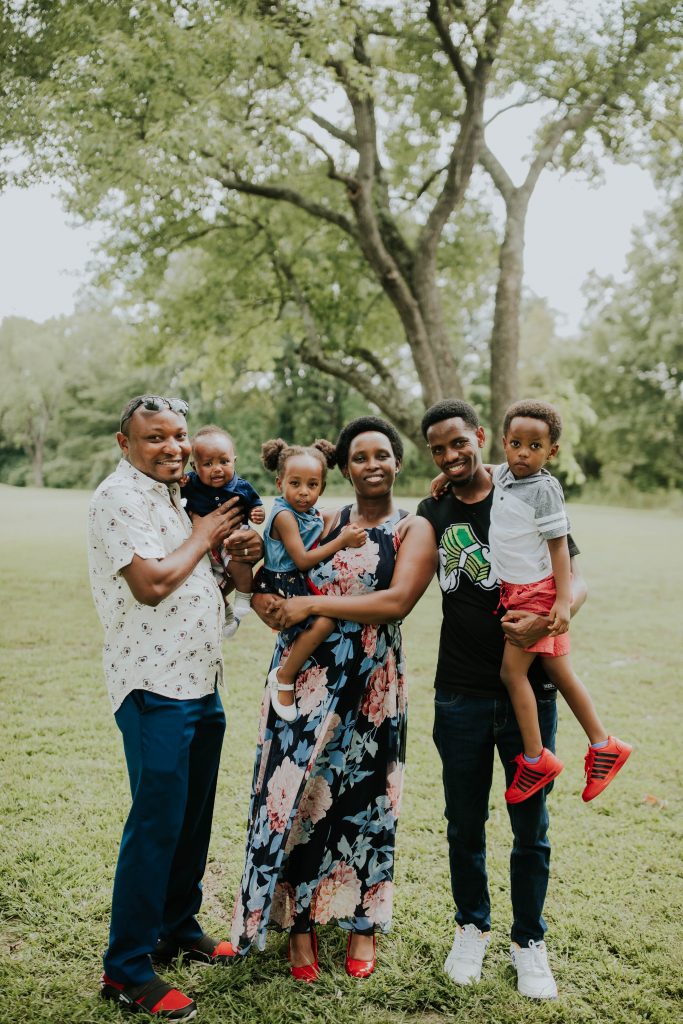
When she arrived, World Relief helped her and her family begin to get settled into their new life. It was Arrey, however, who took them under his wing and welcomed them.
“I was drawn to invite more people to the church, not just to promote the church, but because it was what Christ asked us to do and when he was living, he commissioned the disciples to win more souls,” said Arrey, who is an active member in his church. “Every weekend, we would go out to evangelize, and that’s how we were sent to the apartment where they were.”
Ruth and her family were thrilled to meet to meet a fellow immigrant from Africa, and they eagerly accepted Arrey’s invitation to come to his church. From there, their friendship began to blossom. He soon learned that she was pregnant with twins, and the church became aware of her refugee status.
“She said that they were in a refugee camp for almost two years because they were escaping war in their country, and she said her husband and siblings were still back home,” Arrey said. “Cameroon had never had any wars, and I had never been in a situation like that, so I was drawn by the story.”
Nurses, doctors and police officers at his church all began helping Ruth as if she were family. Because she had no car, they took turns driving her to doctor appointments and her English classes with World Relief.
“We made a schedule, and I was the main guy because I was still working night shifts,” said Arrey, who is now a police officer. “I scheduled myself for mornings so that I could take her to her appointments, and one of my church members who does not work in the afternoons was taking her back home.”
At times, even the pastor’s wife was helping as well. Through one person, a community had arisen around this young woman who volunteered to take care of her when her husband was thousands of miles away as she prepared to give birth.
When her children were born, Arrey was there to welcome them into the world.
“The doctors even told me ‘Dad, congratulations!’” Arrey said with a laugh. “I told them I was not the dad, that he was in Africa, and they couldn’t believe it.”
Because of his help, Ruth named her children after Arrey, Kelvin and Kelvine. To this day, he still has the photo from the day the babies were born.
From there, Arrey worked with Ruth and World Relief Memphis to file the proper paperwork to ensure that Ruth’s husband, Dieudonne, could come to Memphis as quickly as possible. He became an official WRM volunteer, welcoming other refugees to Memphis as one of our Good Neighbor Teams.
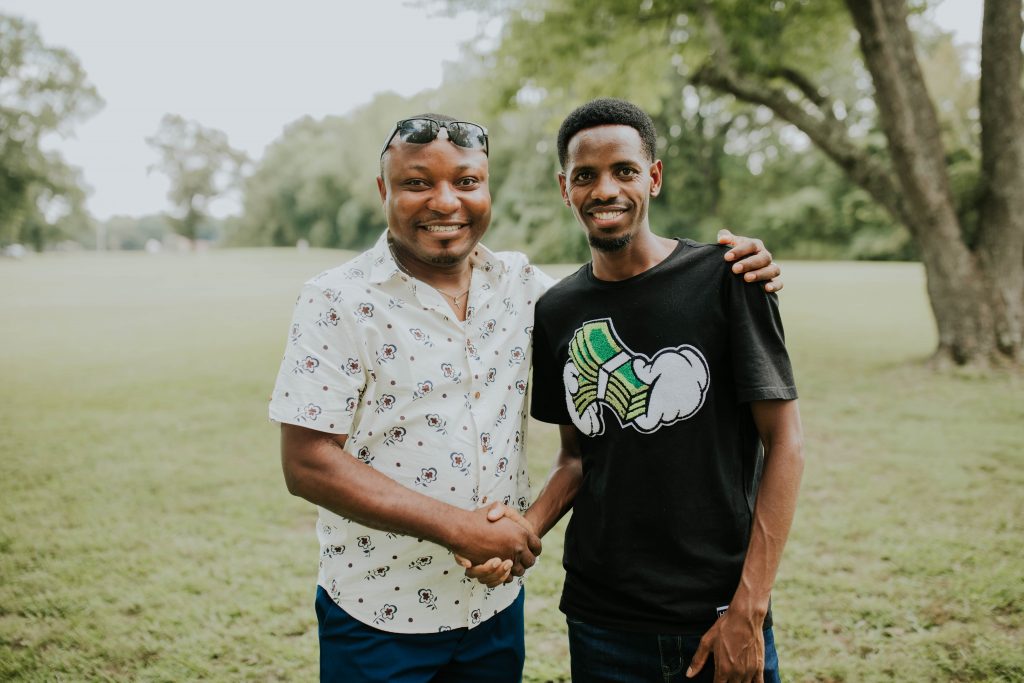
At the same time, he continued helping Ruth and her family and visited them weekly. When Dieudonne arrived, Arrey rushed to welcome him, taking him on a “Boys Night Out,” to show him the city: where to buy groceries, where to find African food, etc.
Today, Arrey is “like a big brother to him. Anytime he’s making a big decision, like taking a job, he would ask my opinion.” When it came time to buy a car, he helped Dieudonne learn to drive and eventually choose one.
He’s continued to welcome other refugee families alongside World Relief so that they will not have to experience the same loneliness that he did. Four families have come and gone, but Ruth and Dieudonne remain the exception, and they’re still close to this day.
“My story is what drew me to them, and it was heartbreaking to see a young girl separated from her husband with two children, and how difficult it was,” Arrey said. “God works in mysterious ways, and I’m always willing to help in any way I can.”
We cannot thank Arrey enough for coming alongside us and the refugee community to welcome them to Memphis, empowering them to build a new life for themselves. Our work only goes so far, and the help of our incredible volunteers is what truly makes a difference in the lives of these men and women and helps them to build a home.
If you want to get involved like Arrey, whether it’s on a Good Neighbor Team or as a conversation partner or a youth mentor, get started today by filling out your application. Along the way, you just might make a new friend or two, and we promise that you will be making a difference in the lives of our new neighbors.
Volunteer Spotlight: Café English
When Ed Thompson took a business trip to France nearly five years ago, he didn’t think it would have such a profound impact on his life today. But this one experience of speaking a foreign language in a country that is not your own is in fact what spurred him on to become a volunteer at the Connect Language Center’s Café English.
“What very little French I knew, I was scared to death to try because I was afraid they either wouldn’t understand me or I would just botch it up so much,” Ed explained. “I only had to do that for 8 or 10 days, and these folks are here, and they have to do it day in and day out.”
With that thought in mind, Ed signed up to volunteer with World Relief Memphis after hearing a colleague talk about the organization. For months prior to that, immigration had been a hot topic in the U.S., and, after having multiple discussions with colleagues and friends about it, he decided to take the leap and turn words into actions.
“If you read so much Scripture, you see the widow, the orphan, and then you see the foreigner attached to that. So much of what God instructed Israel to do was to take care of those groups,” said Ed, a member of Crossroads Baptist Church. “As far as we are to treat them, we are to walk justly and to seek mercy.”
Ed remembers reading articles written by prominent theologians Russell Moore and Bruce Ashford about immigration, and these pieces in combination with other resources such as the book Welcoming the Stranger are also what encouraged him to take the leap.
“It was just more of a conviction for me, and the legal issue was really, to me, moot,” he said. “God gave His Word. Legal and illegal immigrants didn’t exist, there was no differentiation, and in so much of this, people seem to be more concerned about the laws than the actual how we’re treating these folks.”
Because of this, Ed decided to get involved in whatever way he could, even if it was only for an hour a week. Having experienced what it was like to try to speak another language and simply receiving a nod in return, he knew he could provide more than that for those looking to build a life in America.
“Depending on the level, the ones that weren’t quite as advanced were usually a lot more hesitant to talk,” Ed said. “The biggest challenge is encouraging them to go ahead, to try to speak. If any of the students are like me, I learn much better through trial and error and actually trying to do something than just looking at a book.”
Even if getting some students to speak was a challenge, it presented a learning opportunity for not only the student, but also for Ed and other Café English volunteers.
One time, a Hindu student had mentioned that her favorite American food was a burger. Knowing that Hindus had a special relationship with beef products, however, Ed decided to dig a little deeper. What he discovered was that she was referring to a Chick-fil-a chicken sandwich. Although it comes on a bun, he explained, we don’t call it a burger because a burger implies beef.
Laughing, Ed said that’s why they were there to help: “If you mess up, we’re here to explain that and tell you, ‘Yes, English does this stupid thing. You would think it would be this way, but it’s not.’”
In fact, one of the biggest challenges for Ed personally was rewiring his own way of speaking so that those just starting to learn English would be able to understand.
“The biggest challenge was learning how to not talk English the way we do it every day because you use so many idioms,” said Ed, who now works from home for Fedex. “I would catch myself phrasing something a certain way that I knew they didn’t know what I was talking about.”
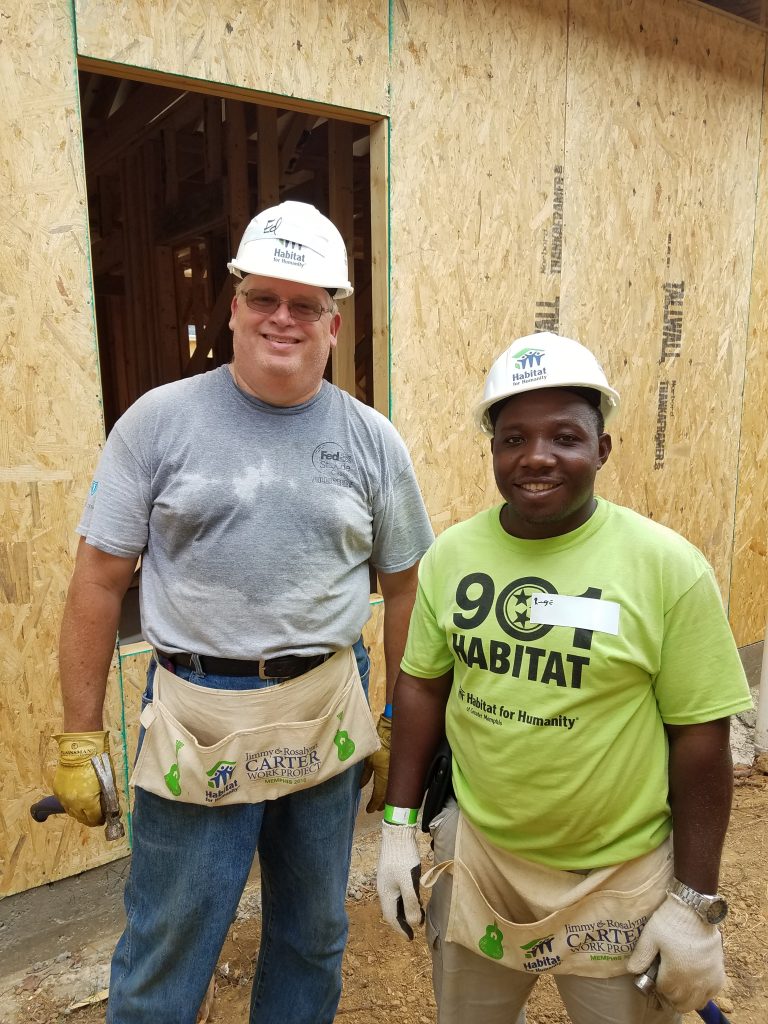
Despite these little challenges, however, Café English and its participants grew on Ed, and he faithfully volunteered there for a year until the pandemic hit. Even then, he was one of the few volunteers who stayed, helping to take the program online for the remainder of the semester.
For three weeks, he and two others helped keep the program running online. Yet because it was during the day, few students could make it to these new times. When the semester ended, so did Café English for the time being.
Even though it couldn’t continue, Ed and his wife still plan on partnering with World Relief and the Connect Language Center in the future to help make a home for our new neighbors in Memphis.
“There’s a big need for the English help that World Relief is providing. There’s a lot of people that probably don’t realize that, through something like Café English, they could make a contribution to help these folks adjust to life here,” Ed concluded. “I enjoyed meeting people from different parts of the world and hearing their stories, and I thought it was just as much a Christian response to show up and say ‘I want to show you some love and say you’re welcome here, and I’m willing to help in whatever way I can.’”
If you, like Ed, would like to help others improve their English and get acclimated to life in the Mid-South, start filling out your volunteer application today. If you want to improve your own English like others did through the café, sign up for a class at the Connect Language Center.
Bailey Clark serves as the Communications Coordinator for World Relief Memphis. With a background in journalism and advertising, she is passionate about storytelling and its power to make a difference.
Internship highlights the best of both worlds
“I grew up in a community of immigrants. Sometimes those immigrants were refugees that had to flee for various reasons, so I’ve always been interested in it,” said Madiha, one of our spring 2021 interns.
A daughter of Pakistani immigrants, Madiha knows what it’s like to grow up with two cultures, or, as she would put it, the best of both worlds. Yet she also knows what it’s like to adjust to a new culture, and to feel like an outsider, thanks to her own experience and that of her parents.
“I’ve never been back to Pakistan, which is where my parents are from, but I’ve heard a lot about the differences in culture and the way that they had to navigate that,” she explained. “There are ways that we have adapted to American life, which has been very interesting, but we do also celebrate all the holidays that go with being Pakistani, and we do get super excited and dressed up to do all the fun things there too.”
Although she gets to experience the American tradition of Christmas trees alongside those of Pakistan, her own beliefs and traditions, in addition to her travels, have allowed her to see firsthand how it may feel for a refugee just arriving who feels displaced.
“I think that growing up as a Muslim in a post 9/11 society, I’ve also been able to see how it feels to be an outsider in your own home and when you get out somewhere,” said the twenty-year-old. “Those experiences have helped me interact with people from different backgrounds better, and even have more empathy for what’s happening in their lives.”
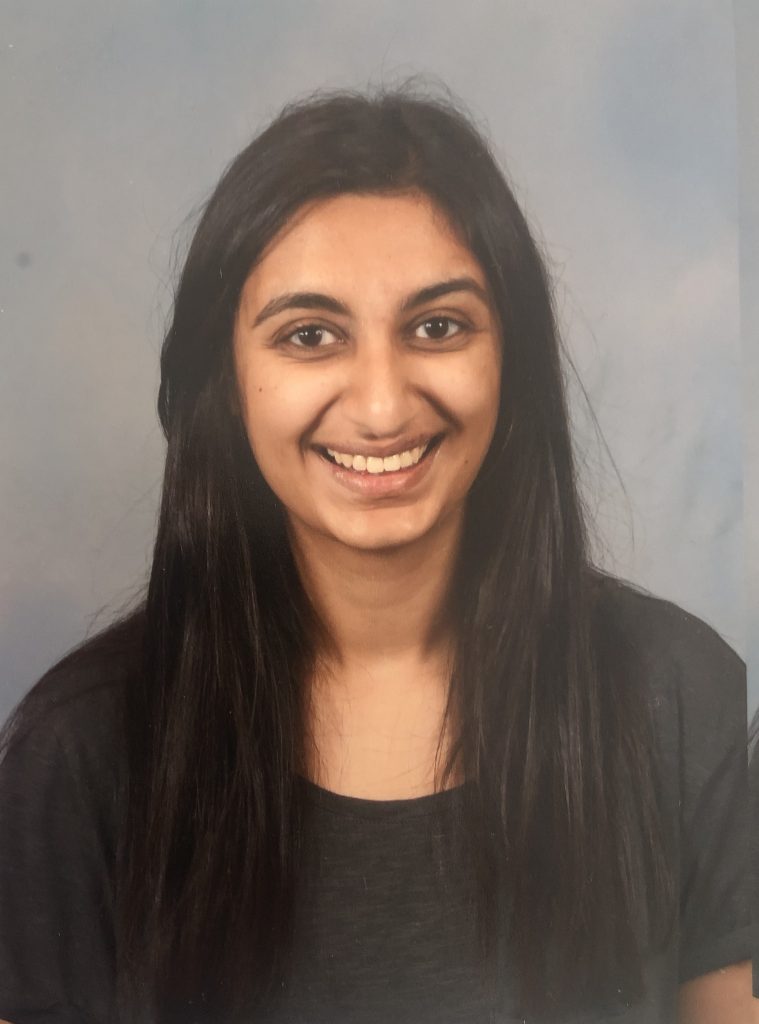
Thanks to experiences such as this one, Madiha decided to pursue a degree in international relations with a focus on international migration at Georgetown University in the school of foreign service. When she came back to Memphis to complete her classes online in the midst of the pandemic, she took advantage of the opportunity to work directly with those affected by mass displacement through an internship at World Relief Memphis.
Despite only being a month into her internship, she can already attest to how much she has learned thanks to coworkers such as Vaughan Meiss who have taken the time to explain the refugee resettlement process to her.
“I was just hoping to learn more about the entire process, from the time that a person gets off at the airport all the way through to being deemed as resettled in the community,” Madiha said. “I haven’t known a lot of things about the whole process, so I definitely appreciate the way they’ve been very open to explaining everything.”
After this experience, Madiha feels inspired by the stories she has heard, and she knows that she will have many career options available to her—whether it be in policy, migrant students and education, or even a refugee resettlement agency such as World Relief.
“I’ve loved talking to the people that we work with and hearing what they’ve gone through, seeing their attitude towards the challenges they have faced has been very uplifting,” stated Madiha, who speaks not only English but also Urdu and Hindi. “When we do talk to them, their willingness to work and figure out how they can settle into life is very inspiring.”
With only a few months left, she is hoping to learn as much as possible before returning to Georgetown and continuing her studies. Yet thanks to her time at World Relief Memphis and to her own experiences thus far, Madiha is going back knowing that “there’s a lot more in common when it comes to the source of our traditions than [we] realize, and it all just depends on how you display them that’s different.”
With that in mind, Madiha urges future interns to act with empathy and understanding, as a friend.
“Don’t have the perspective of someone who comes in and saves them, that savior complex,” said Madiha after highlighting the resiliency of refugees. “Be someone who just works with them, and gets to know them and is their friend.”
Already, she has begun to do the same in just her short month with us by listening to different stories and coming alongside our newest neighbors in their road to integration, and we know that she will continue to do so in her future endeavors as well, whether they be in Memphis, Washington, D.C. or elsewhere.
And this summer, we will be welcoming more interns who want to learn and make a difference in the lives of our refugee and immigrant community. If that sounds like you or someone you know, fill out an application by April 6, 2023. Hopefully, we’ll be welcoming you in June alongside our new neighbors.
Bailey Clark served as the Communications Coordinator for World Relief Memphis. With a background in journalism and advertising, she is passionate about storytelling and its power to make a difference.
Why I serve: the story of Peace
As an immigrant, I know how it is to feel overwhelmed in a new place with no guidance. I have watched my parents come back home frustrated because they did not understand the system, and it was no fun at all. I eventually got used to going to school, relearning how to write, and learning various subjects that I had never even heard of, and, still to this day, I am often confused. During my junior year in high school, I started to get engaged in the community, and I felt happy that I was able to do things that made people’s lives easier. During my senior year, I found an immigrant community and was very happy to be a part of it. They made my life better and helped me understand the college process since I would be the first person to attend a university in the U.S. in my family. I realized that I wanted to give back to that same community, so my interest in service grew, specifically in immigrant communities. I was not confident in my ability to tutor students, so I decided to volunteer each time they needed me to talk about the organization at social justice panels. I started working towards more service, and I applied to the Bonner program at Rhodes College, a program for students that want to be active in the community.
I got accepted, and this was where I first heard of World Relief Memphis. I got a remote internship and began to work immediately. Due to the current pandemic, I am not able do in-person service, but I feel very helpful and happy with my duties. I am responsible for doing research and contacting local organizations that might help us at World Relief Memphis serve our clients better. The research that I do helps with community orientation for our clients and helps establish partnerships with other communities and organization willing to work together with WRM to build a stronger community and home for all.
As a Christian, my faith encourages me to help and serve others the way that God wants us to, and recently, I have started using this faith to guide me as I continue my service and education. This internship has opened my eyes to a new dimension of the church that I do not often consider: service and giving. We are called to give and serve just as Jesus did while He was on earth, and I plan on doing just that in whatever way I can, and to the best of my ability. I am currently a biology major at Rhodes College on the Pre-Med track, hoping to use my education to combat the health disparity issues that immigrants and refugees face in the United States.
While that is currently a long-term goal, I look forward to being physically engaged at World Relief Memphis, and I hope to be a part of new beginnings in the lives of my fellow immigrants.
If you want to get involved in the local immigrant community and help make a difference as well, we are currently looking for interns to join us this summer! Just click here and fill out an application, and we’ll be in touch with you to discuss the next steps.
Peace Abhieyghan is our Spring 2021 intern within the Mobilization department with a passion for giving back to the immigrant community.
Family traditions inspire spring intern, Ibssa
Ibssa may have only been interning with World Relief Memphis for a month now, but he can already see the difference that the experience has had on his life.
Part of an immigrant family himself, Ibssa began his internship hoping to gain “first-hand experience with people in such situations outside of just [his] own family . . . This is a bit more in-depth because you have more types of circumstances to work with.”
At 21-years-old, Ibssa has grown up in Memphis, but his family comes from a long line of “influencers,” as he would say, in Ethiopia. His uncle is a famous musician, and his great-grandfather once traded with the king himself when the monarchy was still in place.
With a family history such as his, it’s only natural that Ibssa wants to one day be the best in his field as a clinical psychologist. However, he wants to go one step further by serving other immigrants as well.
“My interest has always been wanting to work with immigrants and different people who come, and [those] who come through trauma related reasons,” said Ibssa, a senior at Christian Brothers University. “A lot of people who do come here come usually do to very difficult events or dangerous situations.”
And at World Relief Memphis, Ibssa is getting his first glimpse of what that could be like by serving in our Integration Services Department, helping contact program participants and assisting them in setting up their new life in the U.S.
“It’s going to be something that will vary each week,” Ibssa explains. “It’s helping them get whatever they need and keeping up with their plans or their goals, and just basically facilitate that process so that they get exactly what they need and where they need to be, and feel motivated in their own right.”
As someone who has learned multiple languages himself, Ibssa understands what it can be like to communicate in a language that’s not your own, and he’s enjoyed helping program participants in any way he can. But, they’ve also influenced him as well.
“I first met a Swahili client this Wednesday, and I just fell in love with the way that language sounded,” said Ibssa, who currently speaks English, Spanish and Oromo. “It was just so beautiful to me, and I was like I have to learn this.”
By adding Swahili to his list, Ibssa will be one step closer to becoming a polyglot, and one step closer to opening his practice that will one day serve other immigrants in the community, just as World Relief does.
Having grown up with Ethiopian and American traditions, Ibssa is no stranger to balancing two cultures, just like many of our refugee families do now. That, in itself, is in part what drew him to World Relief. And as future interns begin arriving this summer, Ibssa urges them to be open minded. If you do, he says, you will have so much to gain.
“You can learn so much from different people. Your eyes will open to just how expansive culture, language, experiences and though processes can be,” Ibssa says. “Just how resilient some people are who come from maybe hard situations. It’s just the fact that people can connect no matter where you’re from.”
Perhaps one day, Ibssa’s name will be known for his work with immigrants, just like his great-grandfather’s and his uncle’s names were celebrated before him. Yet for now, we are thrilled to have him working with us in Memphis this semester as he finishes his undergraduate degree.
“Come and be open-minded,” Ibssa says. “You’ll be so surprised by what you see.”
If you’re looking for a summer internship, we are currently accepting applications! Apply here, and we’ll be in touch with you for any additional information or interviews. If you are not looking to intern but still want to get involved, check out the volunteer opportunities we have available.
Bailey Clark serves as the Communications Coordinator for World Relief Memphis. With a background in journalism and advertising, she is passionate about storytelling and its power to make a difference.
Black History Month: Inspiration and Hope
As part of Black History Month, we’ve asked a few of the youth in the refugee community to tell us their experience learning about it. At World Relief, we work to honor and include all cultures and heritage, and celebrating Black history is just one way to do so. The last in a series of three, Mary Makuta tells us about her own inspirations within the Black community.
Food. Cooking. Hairstyles. Make-up. Technology. Transportation. The list could go on. When Mary Makuta first arrived in Memphis, everything seemed foreign to her.
Over time, however, she’s adapted, and the high school senior is now thriving in her new home. In June, she will be graduating from Central High School ahead of schedule. In just four years, she will have gone from seventh grade to graduation, and it’s all thanks to her hard work and determination.
When I spoke to Mary, she was on her way home from studying to go attend night classes. In order to graduate early, she takes double the normal class load, and she works part-time on the side as well.
Despite all her engagements, Mary still took the time to sit down and speak with me about Black History Month. In every country she’s lived in—the Democratic Republic of Congo, Rwanda, Namibia and the U.S.—she has always learned about history and found it important.
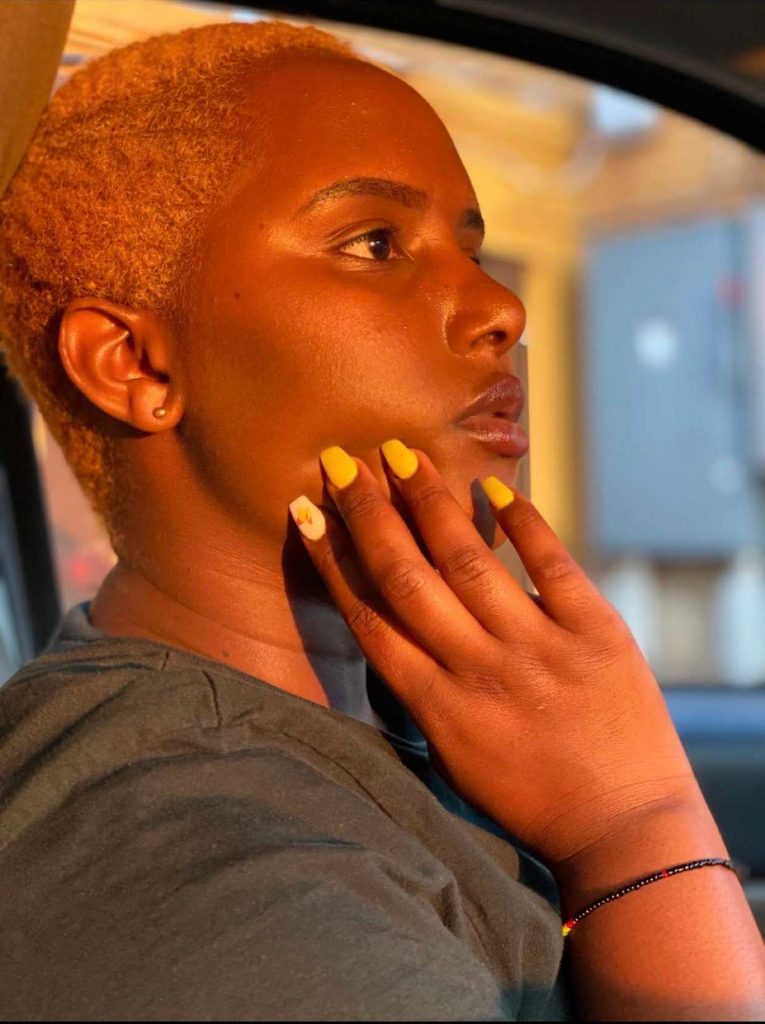
“What happened years ago, we can learn from it and not let it happen a second time,” said Mary, now 18. “People did many things for our country so that it can be better in the future.”
In particular, she remembers the prominent civil rights leaders of the 1960s. To her, they were “being brave for others. Even though they were scared, they did not give up.”
Their perseverance, alongside other prominent African American figures, are in part what inspire her today. Mary one day plans to be a prominent businesswoman, working in the real estate and transportation businesses.
Because for her, anything is possible now. The Obamas and others have proven that in recent years, and the brave work of civil rights leaders such as Martin Luther King Jr. and Rosa Parks helped pave the way.
“Kamala Harris, she said that every girl can one day be like her,” Mary told me at the end of our time together.
With that thought in mind, Mary has set her sights high, but we have no doubt she will succeed as she already has in balancing school, work and family life in a new country. And although she may miss her home in the Democratic Republic of Congo, we have no doubt that she will have a profound impact in her new community of Memphis.
Bailey Clark serves as the Communications Coordinator for World Relief Memphis. With a background in journalism and advertising, she is passionate about storytelling and its power to make a difference.
Volunteer internship turns into lifelong dream
Kara Spencer’s experience at World Relief was a little different from that of most other interns since her mother, Karen, was the Mobilization Director in the Memphis office. She was in high school when her mom started the job at WRM, and, almost immediately, she started volunteering with special events and spending time in the office. Although their family often discussed global issues, Kara did not know much more about refugees than the typical high schooler.
Over time, Kara’s volunteer work developed into a passion for helping and welcoming refugees. She accepted an internship in 2019 and devoted attention to creating databases, spreadsheets, and improved record-keeping of volunteer and intern history. But her favorite part of the experience was going to airport arrivals, where she loved being able to witness resettled refugees finally arriving in their new home, often being reunited with friends or family members already in the United States. These arrivals underscored the importance of all of the work that World Relief does in the local community. For her, getting to see the emotional arrivals made the more mundane, clerical work she was doing worth the effort.
Since part of her mother’s role was visiting churches to raise awareness for World Relief’s mission, Kara also experienced first-hand the varying reactions to World Relief’s work and purpose. During non-COVID times, her mother explained the mission of World Relief to churches, asking them to come alongside World Relief to work together in the Memphis community. Many people understood how this work fit into the mission of the global church, but others would view refugee and immigration as solely a political issue.
Despite seeing such opposing reactions, Kara was and still is encouraged by the curiosity people showed toward World Relief’s mission, and she hopes a seed will be planted that will encourage others to get involved as well—whether that’s learning more about the topic, volunteering or even donating.
Kara’s own reaction to the work of World Relief has inspired her future plans to create a business, hopefully a coffee shop, which employs recently resettled refugees in order to provide avenues for training and soft skills development. Many refugees’ job experience from their home countries does not transfer into the American economy without additional training, or their experience is more informal than the American job market typically requires. Other times, development-related jobs are needed in order to help refugees build a self-sufficient life in the United States.
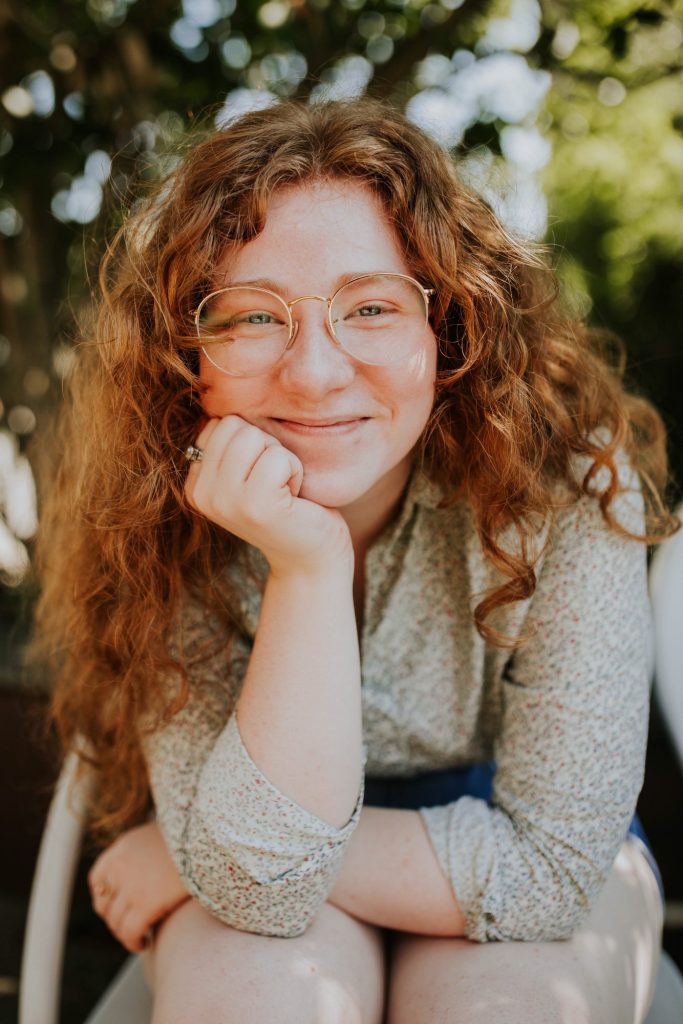
Through her business, however, Kara would be empowering refugees by providing job training and English practice. Hopefully, she would also be able to raise awareness among other Americans about immigration and diversity in their community. To make this dream a reality, she is pursuing a degree in Business Administration with a minor in entrepreneurship at Harding University. Her vision is to develop a creative and welcoming environment that is more than just a coffee shop, adding significance to her work by finding additional avenues for refugee integration.
Until then, Kara is encouraging fellow college students to get involved because they have the time to dedicate to this important work. By donating their time to these organizations, real change can be created in individual lives and in the community as a whole. The opportunity to learn about such an important topic and area of work is vital as this area will likely only grow in its importance in the coming years under the Biden administration. Volunteering or interning with World Relief is just the beginning of a life-long commitment to learning about refugees and both the challenges and opportunities they face as they transition to life in the United States.
Interested in learning more? Volunteer, intern, or donate to World Relief’s mission here!
Sarah Barnett was the former Mobilization Intern for World Relief Memphis and is a senior at Furman University in South Carolina. She majors in Political Science and Spanish and is passionate about influencing where people and policies collide.
Bailey Clark serves as the Communications Coordinator for World Relief Memphis. With a background in journalism and advertising, she is passionate about storytelling and its power to make a difference.
Photo by Emily Frazier
Black History Month: Many tribes but one culture
As part of Black History Month, we’ve asked a few of the youth in the refugee community to tell us about their experience learning about it. At World Relief, we work to honor and include all cultures and heritage, and celebrating Black history is just one way to do so. The first in a series of three, Emilienne, or Emily as she’s called in the U.S., tells us what Black History Month means to her in addition to her own culture.
At age thirteen, Emily Yope and her family moved to Memphis. For years, her family had been working to complete the paperwork necessary to move to a new country in hopes of avoiding the conflict in their home, the Democratic Republic of Congo (DRC).
Upon her arrival, Emily immediately wanted to return to her old home.
“I wanted to go back. The first day, everything was different: the food, the people, the language, the house and school,” Emily said. “But with time, I’ve gotten used to it, and now I like it here.”
What once seemed foreign has slowly grown to feel normal—speaking English instead of French or Swahili, eating pizza, even wearing different clothes. She’s been able to incorporate aspects of her own culture, such as continuing to make the traditional dish fufu, a pastry often served with meat and a sauce, alongside these new American traditions.
However, it’s been more than just adapting to American culture. In school, she’s also been introduced to Black culture and history during Black History Month.
“They talked about it in history classes, and they had programs for it,” said Emily, a senior at Central High School. “They celebrated it on Fridays after school. People sang and acted out important moments that happened. [They] recited poems.”
Out of all of this, the moments that stood out to her the most were the ones when words were put into action: “I love Rosa Parks, Martin Luther King Jr., Harriet Tubman. They stood up and did something. They stood up for themselves.”
As a student also coming from a different culture, Emily understands how essential it is to learn about others and value their differences.
“It’s important [to learn about Black history]. It’s cool to learn the cultures and history of people,” said Emily, now 18. “Their culture is where they came from—how life has been since they got here, and how it’s going.”
Over time, Emily would like to see some of her own culture or that of her fellow refugees included as well: “When it comes to my skin color, I’m one of them. But when it comes to my actual culture and traditions, it’s different.”
Some of those differences can be seen in something as simple as a name. In America, when you meet someone, you automatically call them by their name. In the DRC, however, you wouldn’t necessarily call someone by their name. If they’re older than you, for example, you would call them aunt or uncle.
“I had to get used to that,” Emily said with a laugh. “You get all these uncles that you don’t know, but just because they’re older than you, you call them uncle.”
Although this is just one of many examples Emily shared, there are certain things from her home that can still be applied to the U.S. today. The DRC has thousands of tribes, and each one of them has their own culture.
“People look the same, but this person belongs here, and that person belongs there,” Emily explained. “But when they meet, they’re all the same people. In America, it’s the same.”
Some people may be from Memphis, and others from California, but they all still hold certain values and cultural traditions in common such as the way they dress or the food they eat. In a way, Emily said, it’s similar to her home. Everyone has different cultures and stories, as can be seen with Black History Month or Hispanic Heritage Month, but everyone is still American.
These cultural differences are part of what makes America the United States of America, and, when the country was founded nearly 250 years ago, everyone who came did so with the hope of a better life, just as Emily and her family did.
Today, we celebrate those who came in addition to those who fought for a better life, such as Martin Luther King Jr., Rosa Parks, and the many others that came before and after them.
“I would love to go back and live in that time,” Emily said. “The fact that some people had to sacrifice to live better . . . I would love to do that, to ensure that my grandkids live a good life.”
One day, Emily plans to do just that by returning and helping those in her home country. But for the moment, she’s taking notes during this Black History Month and continuing to embrace the different cultures surrounding her in her new home, Memphis.
Bailey Clark serves as the Communications Coordinator for World Relief Memphis. With a background in journalism and advertising, she is passionate about storytelling and its power to make a difference.
Photo by Emily Frazier
2021 Lent Prayer Calendar
This year, we’ve decided to create a Lent prayer calendar to share with our community. Together, we believe that we can walk towards a new horizon where we love our neighbors as the Lord has commanded us to do, and it all starts with prayer.
Below, in addition to prayer requests from our team, you will find Scripture from our “I was a Stranger” Bible study. If you haven’t already done so, we invite you to learn more about what the Bible says about immigration here. Or, consider joining our 21 Days of Peace Bible study on YouVersion.
